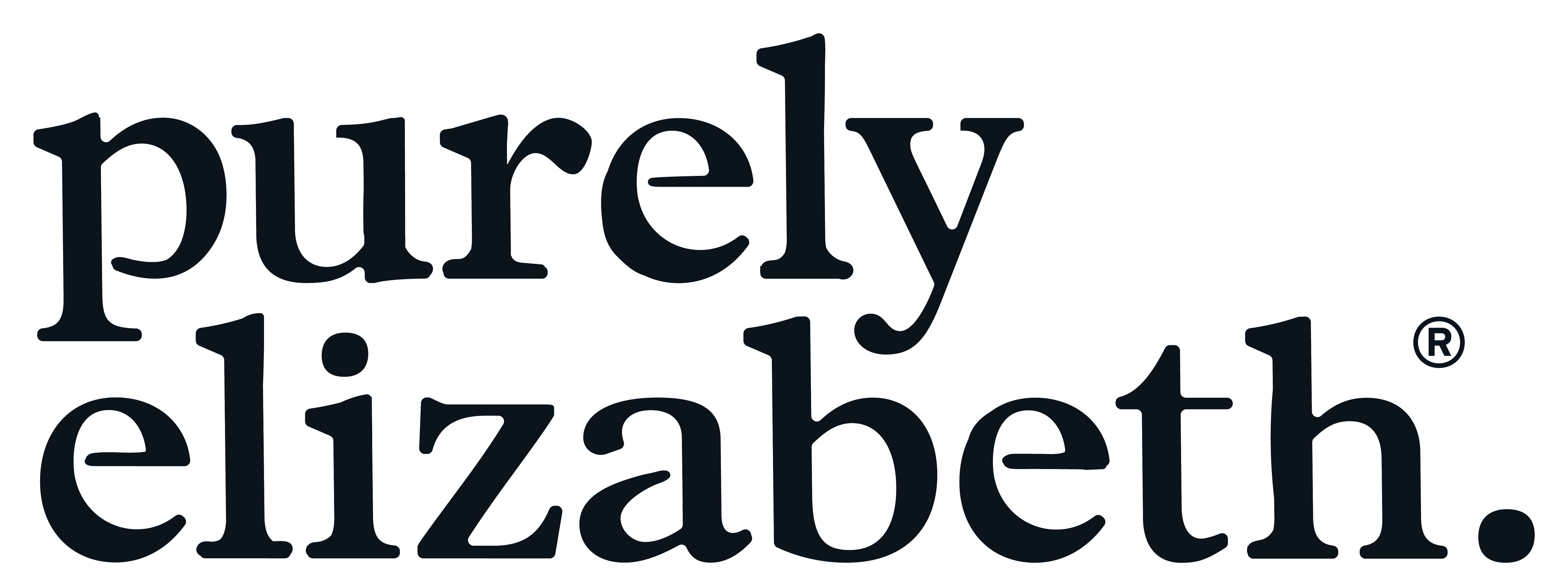

Purely Elizabeth

February 2015
Food products
Wholesale/Retail
United States
Purely Elizabeth was founded in 2009 by Elizabeth Stein. Elizabeth was working as a Holistic Health Counselor and was having trouble recommending healthy gluten-free options to her clients. With her background in Integrative Nutrition, she went into the kitchen and began to create baking mixes with alternative nutrient rich flours that were naturally free of gluten and refined sugar. Elizabeth was an active Triathlete at the time and brought her goodies to a race expo to promote her Counseling business. People couldn’t have cared less about her counseling and just wanted her muffins! That was the real aha moment for Elizabeth and Purely Elizabeth was born. Purely Elizabeth has now since discontinued the muffin mixes and focuses instead on granola and oatmeal made with certified gluten-free oats and organic ancient grains and superfood seeds. We are passionate about using the most superior, high-quality natural and organic ingredients loaded with health benefits and free of the bad stuff. At Purely Elizabeth, they think a healthy food system can be achieved through sustainability and transparency. Only a healthy food system can allow for a healthy planet filled with happy and healthy people.
Overall B Impact Score
Governance 16.3
Governance evaluates a company's overall mission, engagement around its social/environmental impact, ethics, and transparency. This section also evaluates the ability of a company to protect their mission and formally consider stakeholders in decision making through their corporate structure (e.g. benefit corporation) or corporate governing documents.
What is this? A company with an Impact Business Model is intentionally designed to create a specific positive outcome for one of its stakeholders - such as workers, community, environment, or customers.
Workers 26.4
Workers evaluates a company’s contributions to its employees’ financial security, health & safety, wellness, career development, and engagement & satisfaction. In addition, this section recognizes business models designed to benefit workers, such as companies that are at least 40% owned by non-executive employees and those that have workforce development programs to support individuals with barriers to employment.
Community 18.5
Community evaluates a company’s engagement with and impact on the communities in which it operates, hires from, and sources from. Topics include diversity, equity & inclusion, economic impact, civic engagement, charitable giving, and supply chain management. In addition, this section recognizes business models that are designed to address specific community-oriented problems, such as poverty alleviation through fair trade sourcing or distribution via microenterprises, producer cooperative models, locally focused economic development, and formal charitable giving commitments.
Environment 28.4
Environment evaluates a company’s overall environmental management practices as well as its impact on the air, climate, water, land, and biodiversity. This includes the direct impact of a company’s operations and, when applicable its supply chain and distribution channels. This section also recognizes companies with environmentally innovative production processes and those that sell products or services that have a positive environmental impact. Some examples might include products and services that create renewable energy, reduce consumption or waste, conserve land or wildlife, provide less toxic alternatives to the market, or educate people about environmental problems.
What is this? A company with an Impact Business Model is intentionally designed to create a specific positive outcome for one of its stakeholders - such as workers, community, environment, or customers.
Customers 3.4
Customers evaluates a company’s stewardship of its customers through the quality of its products and services, ethical marketing, data privacy and security, and feedback channels. In addition, this section recognizes products or services that are designed to address a particular social problem for or through its customers, such as health or educational products, arts & media products, serving underserved customers/clients, and services that improve the social impact of other businesses or organizations.